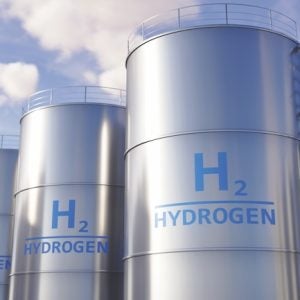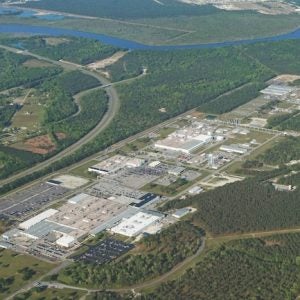In the 1980s the World Energy Council (WEC) began work on energy scenarios looking out first to 2020, then to 2050, and now to 2100, which clearly show the importance of nuclear power in the world’s energy mix; but we also began serious work on new technologies and financing issues.
Nuclear power has never had a “free ride” in terms of public opinion. The debate on nuclear power was often weighed down by poor communications from seemingly arrogant nuclear power industry executives about progress on waste management, safety and best practices. The technology is much more costly than originally projected and, while nuclear fuel costs are low relative to fossil fuel costs, operations and maintenance costs are higher and the overall economics of nuclear power have not improved as fast as the market reforms in electricity and gas require.
In 1999, the debate on the future of nuclear power in Europe sharpened; some countries have banned it outright (such as Italy and Austria), while others grappled with winding it down
(Sweden, Germany, and now Belgium), but there were others which expressed concern about maintaining the skills and scientific base of the nuclear power industry for the day when it would reassert its role in clean and sustainable energy markets.
WEC felt it was time to focus the nuclear power debate, not on the failures in communication of the past, but on the economics of nuclear power today. So we met in Zurich in June 1999 and asked the question: Western Europe without nuclear energy? Regional and global implications. It was our objective to make a positive contribution to the preparation of the European Union (EU) green paper on energy.
The Zurich meeting accepted the feasibility of medium-term energy supply scenarios without nuclear power in Western Europe, but at a significant economic, technological and environmental cost. It noted that the surplus of electricity in Western Europe and neighbouring states in transition might appear to be an ideal moment to wind down nuclear power, but this would be risky with long-term energy security and the response of Europe to the Kyoto greenhouse gas targets.
At the beginning of 2000, WEC published its Millennium Statement titled Energy for Tomorrow’s World Acting Now! We argued that the number one issue in sustainable energy systems between then and 2020 was commercial energy access for every household in the world. Keeping all energy options open, coupled with market reform and appropriate regulation, were the pillars of sustainable energy systems; and nuclear power must remain a viable alternative in some markets on both economic and emissions management grounds.
In 2000 the then WEC chairman, Jim Adam of the US, said it would be morally irresponsible for rich countries with nuclear power to close it down because the switch to other fuels would not only drive emissions up, but also drive the prices of clean fossil fuels beyond the reach of developing countries. By linking energy access in developing countries to energy availability (security of supply and affordability) and energy acceptability (reductions in local and global pollution), WEC argued that a sustainable energy world with universal access was within reach and nuclear power was an essential part of this vision.
The EU green paper treated nuclear power in a section called “undesirables” and a “source of energy in doubt”, but it did recognise the positive contribution of nuclear energy to the EU’s supply security. The WEC leadership held two meetings with Loyola de Palacio, the vice president of the Commission responsible for energy, who clearly recognises that keeping all energy options open in Europe is central to EU interests. In its communication to the Council and the European Parliament on the green paper in June 2002, the European Commission recommended that the nuclear option remain open to those EU member states who would like it on the basis of common standards and practices under European controls and peer review.
A phase-out of nuclear power in Europe would have major global and regional implications. It is a far better strategy to accelerate energy market reform, remove producer subsidies, and to let different energy sources compete on economic and sustainability grounds for their survival. Above all, it is not fossil fuel resource constraints or global warming which would ‘make’ the market for nuclear power; it is the ability of the nuclear power industry to bring down costs and construction times, while maintaining a solid safety record with full respect for regulations at all phases of the power chain.
Summit dancing and Kyoto
Time and again Kyoto-based discussions have called for concrete progress on reducing greenhouse gas emissions in industrialised countries while the same countries wean themselves off fossil fuels and nuclear power, using natural gas as the bridging fuel to new modern renewables or a hydrogen-based future. Few if any environmental experts focused on the problem of the world’s poor, numbering two billion people or one-third of the total population, who have no access to commercial energy. The idea of closing down coal or nuclear power plants in Germany and other places looked pretty good, as long as no one had to explain the impact on neighbouring states or the world’s poor. The idea of a renewables-based society or a hydrogen economy looked pretty good, too, as long as nobody put a price on the energy or asked how the hydrogen would be produced, transported, stored and used economically.
To counter the environmental view that global emissions reductions were the number one issue in sustainable energy systems, or that significant progress on greenhouse gas emissions could be achieved by the simultaneous switch to gas and wind down of nuclear power, WEC partnered with the United Nations (UN) Development Programme and the UN Department of Economic and Social Affairs on the World Energy Assessment, published in September 2000. With the help of energy economists from various places in the world and the International Atomic Energy Agency (IAEA) experts, we shifted the focus to commercial energy access for the world’s poor, with advanced and safer nuclear technologies playing a continuing role in important developed markets as well as a potential role in selected developing countries.
At the World Summit almost no one was buying the early demise of fossil fuels or nuclear power in the world’s energy mix. At the very next Conference of the Parties (COP) meeting on Kyoto rules in November 2002 in New Delhi, the World Summit discussion had the impact of shifting the focus to sustainability, full fuel cost accounting, and how to adapt to higher levels of carbon emissions. While it might appear that this would be bad for the nuclear power industry because cleaner fossil fuels might be with the world much longer than some might have hoped, I feel the focus on fuel cycle costs and the economics of energy will prove to be good for nuclear power as well as some renewables.
Although the overall consumption of renewables is expected to grow quickly in the coming years, especially in OECD countries, its share of the global energy mix will not increase significantly. In the short- to medium-term, new modern renewables will remain a small component of energy supply in industrialised countries, as a complement to, rather than a replacement for, cleaner fossil fuels and nuclear power.
Weathering the storm?
When it comes to nuclear power, if you cannot trust governments or business, some people argue it would be better to close it down. I think this is a misguided idea; far better to establish clear regulations and make them stick.
Those who call for the shutdown of nuclear power believe there are clear baseload alternatives which, on a full fuel lifecycle basis, might be cheaper in the long run. WEC has not discovered any.
But to be fully successful, nuclear must be widely accepted by society. This means that governments should play an active role, educating society not only about nuclear waste but also about carbon and other emissions. Electricity consumers who have the choice must start comparing the risks of all technologies. Politicians should initiate debate, assist countries whose reactors are unsafe and ensure a level playing field in the energy market. And the nuclear industry must become responsible for itself more transparent, independent and able to show through its long-term calculation of economic and safety performance that it can survive in the marketplace.
Up to 2030 and probably beyond, global reliance on fossil fuels and large hydro will remain strong, albeit with special emphasis on the role of natural gas and efficient cleaner fossil fuel systems. However, total reliance on these energy sources to satisfy growing demand is not sustainable. While some question the future of nuclear power, many believe its role needs to be stabilised, with the aim of possible future extensions, and that efforts to develop intrinsically safe, affordable nuclear technology need to be encouraged.
The dash for gas in different regions of the world is often the counter argument to nuclear power; gas is currently less carbon intensive and cleaner in terms of local or regional pollution than oil or coal. However, given that additional gas supplies will increasingly come from more remote sources in the world, either by very long pipelines or liquefied natural gas, its greenhouse gas intensity from the wellhead to the burner tip could rise, making it hardly less attractive in full fuel cost terms than oil or coal.
If fossil fuel prices rise in the shorter term either because of the cost of new, cleaner technologies or because of regulations to internalise CO2 and emissions management costs in the price of energy services based on fossil fuels nuclear power could benefit, in relative terms.
Supporters of nuclear power conclude that it has largely fulfilled its early promise, while its opponents feel it has fallen short and should not be given a second chance. Ironically, nuclear power has not completely delivered in terms of economics, but its safety record has been impressive: this shows the steep hill nuclear power companies and supporting governments have to climb in terms of citizens who think the reverse is true! At the same time, in terms of corporate governance, the nuclear power industry needs to establish an unbroken track record of ethically and legally correct behaviour if it is to have any hope of regaining the support of the general public for its future development. WEC’s research and global studies lead us to believe that nuclear energy will play an essential role in electricity production and in strategies against global warming. For baseload electricity generation, one of the most effective means currently available to reduce carbon emissions is nuclear power.
Nuclear energy has advantages in terms of global warming, cost stability and high capacity factors that make it compatible with the goals of sustainable development for tomorrow’s world.






